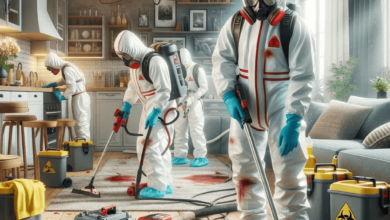
The Advantages of Remote Scribing for Medical Professionals
The healthcare field has changed, and technology is vital in this transformation. Among the emerging solutions, remote scribing stands out as a development. Remote scribing entails using trained professionals to help healthcare providers by documenting patient interactions in time from a distance. This service benefits doctors, dentists, and veterinarians, ultimately improving the quality of care and operational efficiency.
Enhanced Focus on Patient Care
An advantage of scribing is that it enables healthcare providers to devote more attention to their patients. The primary goal for doctors, dentists, and vets is to provide top-notch care. However, the time-consuming task of documenting patient encounters often takes away their focus. By utilizing scribes, healthcare providers can assign the documentation task elsewhere. This allows them to maintain eye contact during consultations and treatments, listen carefully, and engage in more meaningful conversations with their patients.
Improved Documentation Accuracy
Precise and thorough documentation is essential in healthcare. Records that contain mistakes or omissions can result in misdiagnoses, improper treatments, and potential legal ramifications.
Remote scribes undergo training to capture information accurately, ensuring the record of all relevant data. This level of precision and enhancement is a strong defense against potential legal issues. Dentists rely on documentation of procedures and patient histories, a task in which remote scribes play a crucial role. Likewise, veterinarians can benefit from tracking animal treatments and post-care follow-ups.
Read also: Danat Al Emarat: Ensuring the Health of Mother and Child
Enhanced Productivity and Efficiency
Scribes’ presence can significantly boost healthcare facilities’ efficiency and productivity. Healthcare providers no longer have to spend time inputting data into health records (EHRs) post-patient visits. These reduced tasks enable healthcare professionals to attend to patients daily, improving overall productivity. In settings where effective time management is vital due to diverse animal needs, remote scribing can streamline operations and reduce waiting times for pet owners.
Decreased Burnout and Job Stress
Healthcare professionals often experience stress and burnout, primarily stemming from administrative responsibilities. Balancing care with documentation demands can be overwhelming. Remote scribing helps alleviate this burden by managing documentation, allowing doctors, dentists, and veterinarians to achieve a work-life balance.
The decrease in burnout does not enhance their quality of life. It also boosts their capacity to offer caring and effective treatment to patients. Financial Advantages Implementing scribing services can result in gains for healthcare facilities. By increasing efficiency and seeing patients, revenue generation can improve. Additionally, remote scribes reduce the need for hiring time on-site documentation staff, which can lower expenses. Cost savings from scribes can be redirected to crucial areas of the facility, such as obtaining new medical equipment or investing in staff training. Improved Patient Satisfaction Patient satisfaction plays a role in determining the success of any healthcare facility. When healthcare providers can focus entirely on patients without being burdened by tasks, the overall patient experience improves. Patients feel respected. Listened to leading to satisfaction levels, in practices where patient anxiety is shared, the dentist’s undivided attention can create a more comforting environment. Similarly, pet owners value the care veterinarians provide, ensuring that their pets receive attention.
Optimized Health Data Usage
Remote scribes record patient interactions and efficiently organize and manage health data. This organized health information can be easily analyzed to make better decisions. For instance, patterns in conditions can be used to take preventive actions. Dentists can efficiently monitor the progress of treatments, while veterinarians can keep track of animals’ health over time. Utilizing health data leads to patient outcomes and overall healthcare quality.
Adaptability and Expandability
Remote transcription provides flexibility and scalability for healthcare facilities. With changing demands for healthcare services, the number of transcribers can be adjusted accordingly. This flexibility ensures that documentation requirements are fulfilled without compromising care quality. For growing practices, remote transcription offers a solution that grows along with the practice, eliminating issues related to recruiting and training new staff members.
Privacy and Protection
One concern surrounding transcription is the confidentiality and security of data. However, reputable remote transcription services adhere to data protection measures and comply with healthcare regulations, like HIPAA (Health Insurance Portability and Accountability Act). These steps guarantee that patient details remain confidential. Dentists and veterinarians dealing with information transcribers also provide a dependable solution that maintains high privacy and security standards.
Improved Teamwork and Communication
Remote scribes enhance communication and teamwork within healthcare teams. They accurately document interactions and treatment plans, creating an easily shareable record for all team members. For example, a dentist’s note on a procedure can be effectively communicated to dental assistants and hygienists, ensuring seamless care continuity. Similarly, veterinarians can collaborate with technicians and other specialists, leading to coordinated and comprehensive animal healthcare.
In Summary
To summarize, remote scribing offers doctors, dentists, and veterinarians significant advantages. It elevates patient care quality, enhances documentation precision, boosts productivity levels, reduces risks, and provides numerous benefits. Additionally, it contributes to increased satisfaction levels, better data utilization practices, enhanced flexibility in operations, ensures the confidentiality of shared information, and fosters collaborative efforts. By handling data entry for hospitals and other medical practices, remote scribes ensure that extensive documentation tasks are managed efficiently. As the healthcare sector progresses, remote scribing emerges as an asset that empowers healthcare providers to deliver care while effectively managing their practices. Embracing scribing allows healthcare experts to concentrate on their primary task – providing top-notch patient care.




